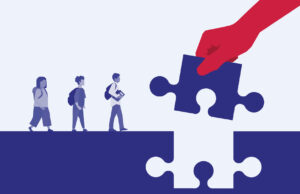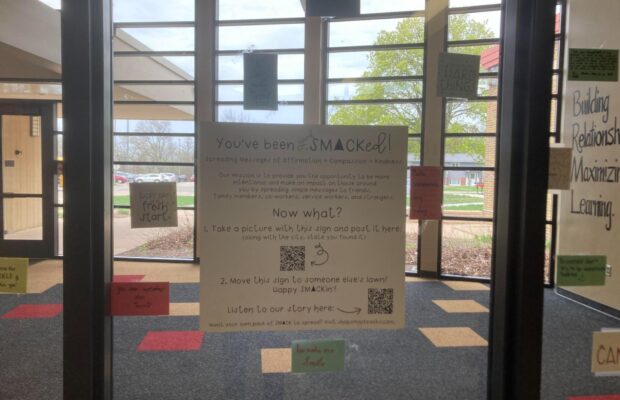Web users need assistance in navigating misleading content

Sophomores Morgan Ferch and Dazha Barr are aware that social media can be incredibly detrimental to how they perceive themselves as well as others, but both say nobody really taught them about the dangers. Ferch and Barr said social media especially affects the body image of female students while the Holmes Junior High counselor Emily Thigles said these issues can follow you into adulthood.
While Ferch, Barr and Thilges all agree that social media can have a negative effect on how they see themselves, they all have different explanations as to why.
“When you’re little, you’re obviously told that it [social media] is a dangerous place for so many reasons. Don’t talk to strangers, don’t send pictures to people you don’t trust, etc., but you aren’t really told that ‘Hey, kids, there’s some bad stuff out there that’ll make you feel like crap,’ and instead you’re just told to ignore it. Like that’ll help,” Ferch said. She said on apps like Instagram or TikTok, “Seeing other people with the ‘ideal body type’ can seriously mess you up, and you don’t even realize it.”
Barr said it’s impossible to avoid exposure to unrealistic images. “I think social media negatively impacts your self image because of the edited photos of other people. Sure you can scroll past it, but sometimes you just can’t. Like, people see these pictures and they think about how they don’t look like the person on their phone so they do stupid [stuff] to try and ‘fix’ themselves. [Stuff] like that can lead to eating disorders.”
Barr also said there’s a need for helping internet users to avoid the negative effects from some of the images found there. “If I see something on TikTok that’s not making me feel too good, I’ll just scroll, but not everyone is like that. Most people get caught up in a loop of self destruction just because of some rando on Twitter or something. Personally I’m not super affected by stuff like that, but that’s not the case for lots of people.”
Thigles said the dangers of social media have been prevalent in this generation’s lives forever. “I didn’t have social media when I was younger, so I didn’t really have those effects being thrown at me all day long like you guys,” she said. “You have had to have that throughout your entire life, as soon as you have access to technology.” She said in order to get out of the rabbit hole that is social media, students need to be educated on how those images are not realistic, and they need help for them to focus on the positive. “Preparing students is educating them how that business works,” she said. “How [websites] work to make people look perfect.”
Thigles also said even she as an adult struggles with how she perceives herself because of social media. “I kinda tell kids the same thing I tell myself, like, am I spending too much time looking at that stuff that’s making me feel like I don’t measure up. Whether it be physical attributes or even just like, my athletic ability or my intelligence,” she said. “All of that can be in your face all the time, and it can make you feel like crap because we just constantly, naturally compare ourselves to others.”









You must be logged in to post a comment Login